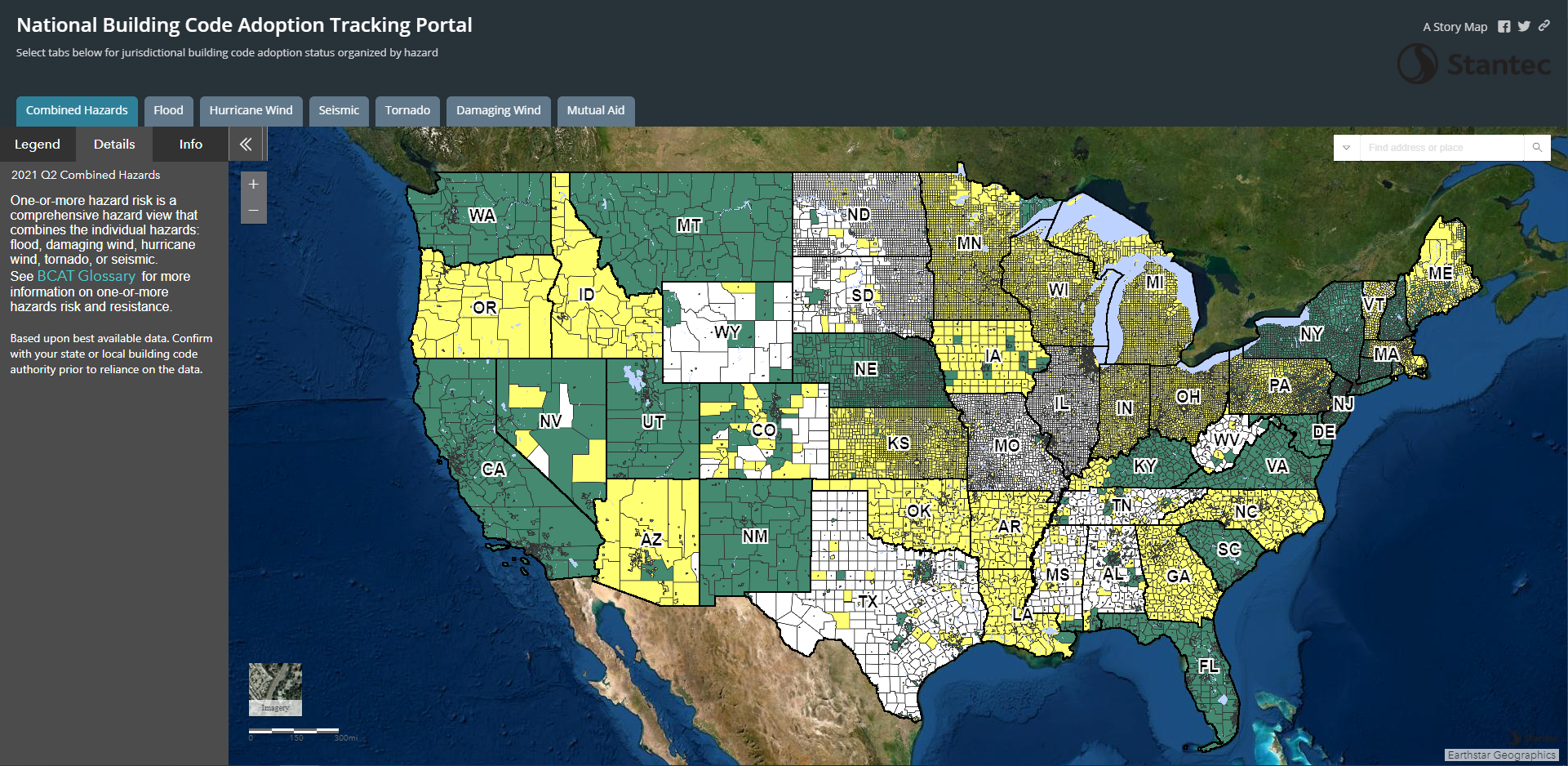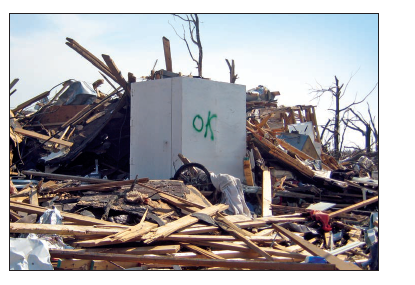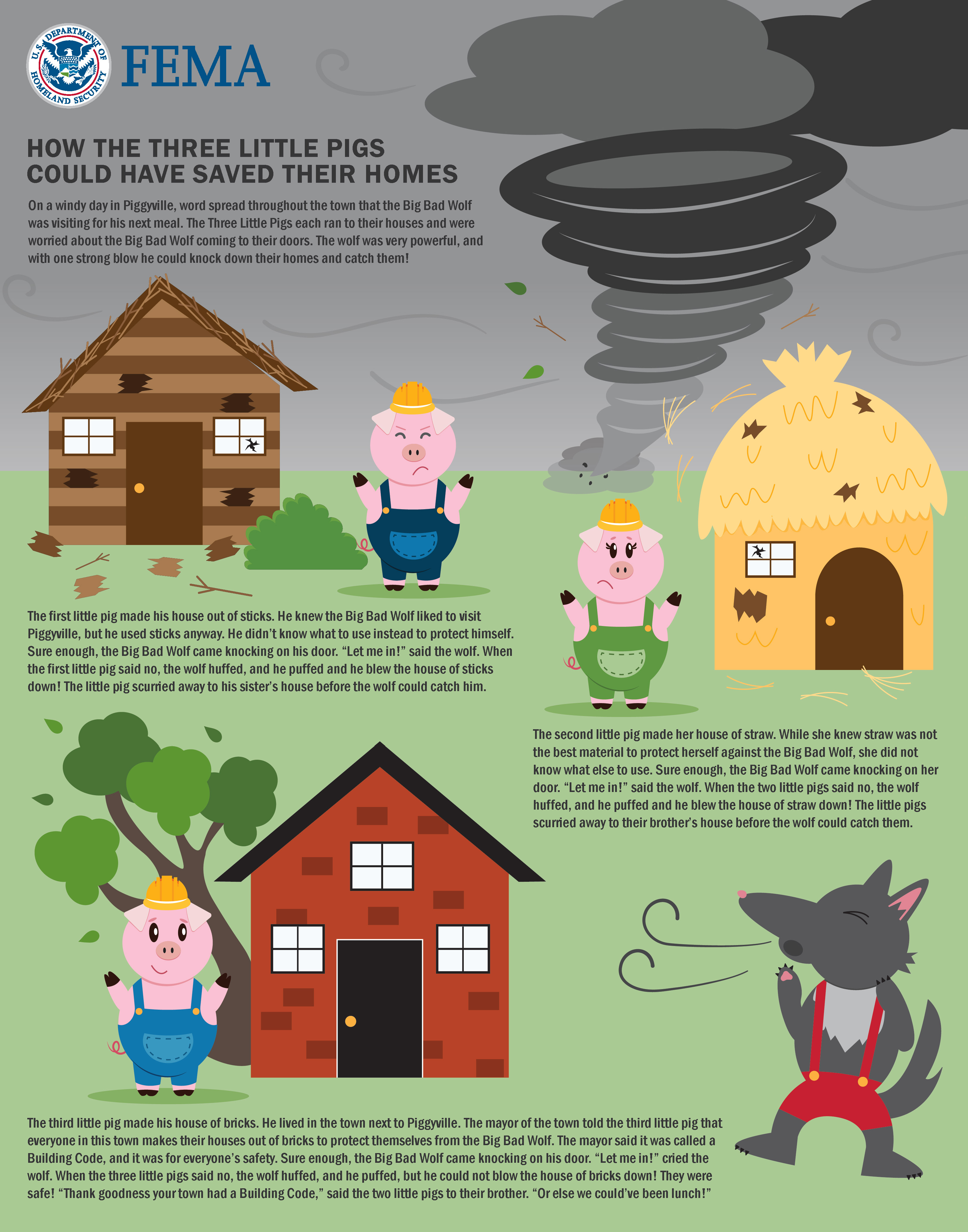Building Science is a central focus for FEMA. It involves the study of how natural hazards affect structures. FEMA employs leading industry professionals in architecture, engineering, and seismology to bring solutions to these challenges our country’s infrastructure faces.
Through research and data, it is proven that natural hazard-resistant building codes save lives and help protect your investment. The Natural Hazard Mitigation Saves: 2018 Interim Report demonstrated that designing buildings to meet the 2018 International Residential Code and 2018 International Building Code led to a national benefit of $11 saved for every $1 invested in comparison to older generations of code.
Building and construction success stories that result after disasters often start when a community has properly enforced building codes and standards. For homeowners, building professionals, or elected officials, it is important to realize that building codes are a minimum standard and that it is essential to build above the baseline. Ensuring that your building is up-to-code or beyond your area's adopted standard before a disaster strikes is one of the most important steps you can take to mitigate the damage caused by natural hazards.
What You Can Do to Stay Resilient
To aid you, FEMA works with our stakeholders to produce multi-hazard mitigation guidance that focuses on creating disaster-resilient communities to reduce loss of life and property.
Whether you are a homeowner, emergency manager, building code official, or policy maker, our free guidance will provide value to you by creating safer communities and reducing loss of life and property.

Building Codes Enforcement Playbook
The Building Code Enforcement Playbook helps local officials strengthen enforcement systems that support the implementation of natural-hazard resistant building codes, increasing community resilience and reducing losses from natural hazards. It outlines actionable steps to improve staffing, training, inspection, and compliance processes.
This Playbook builds on the foundation set by the Building Codes Adoption Playbook, offering the next step in advancing a community's code strategy.
Use the Playbook
Building Code Adoption Tracking
FEMA tracks current building code adoption status for state, local, tribal and territorial governments, reaching approximately 22,000 jurisdictions across the nation.
Find fact sheets, a WebGIS map, statistics and more about Building Code Adoption Tracking (BCAT).

Safe Rooms

A safe room is a hardened structure specifically designed to meet the FEMA criteria and provide near-absolute protection in extreme wind events, including tornadoes and hurricanes.
Explore safe room publications and funding opportunities.
Publications

FEATURED DOWNLOAD
Three Little Pigs Activity Sheet
A short story and accompanying activity sheet intended to inform and engage children about building codes. The front side is a story following the typical structure of the Three Little Pigs, and the backside has a spot the difference activity, maze, and word search.
Building Science Resource Library
Browse the Building Science Resource Library to easily access all of FEMA’s hazard-specific guidance that focuses on creating disaster-resistance communities in the convenience of one place.
Building Code Documents
Reference our building code documents, which provide guidance on the hazard-resistant provisions in the building codes for property owners, engineers, design professionals, building codes officials, and the general public.
NFIP Bulletins, MAT Reports and SDE Tools
View our other document collections:
- National Flood Insurance Program (NFIP) Technical Bulletins


